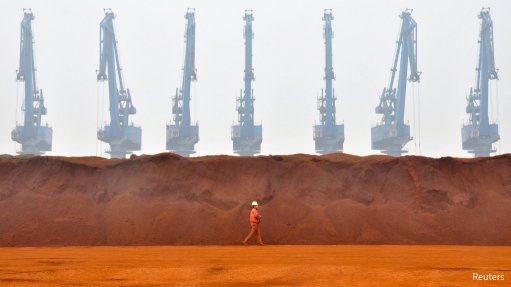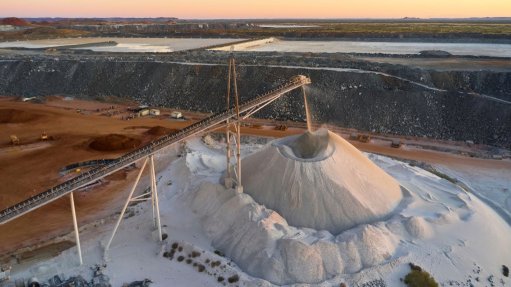‘Highly technical’ phases start at Msikaba

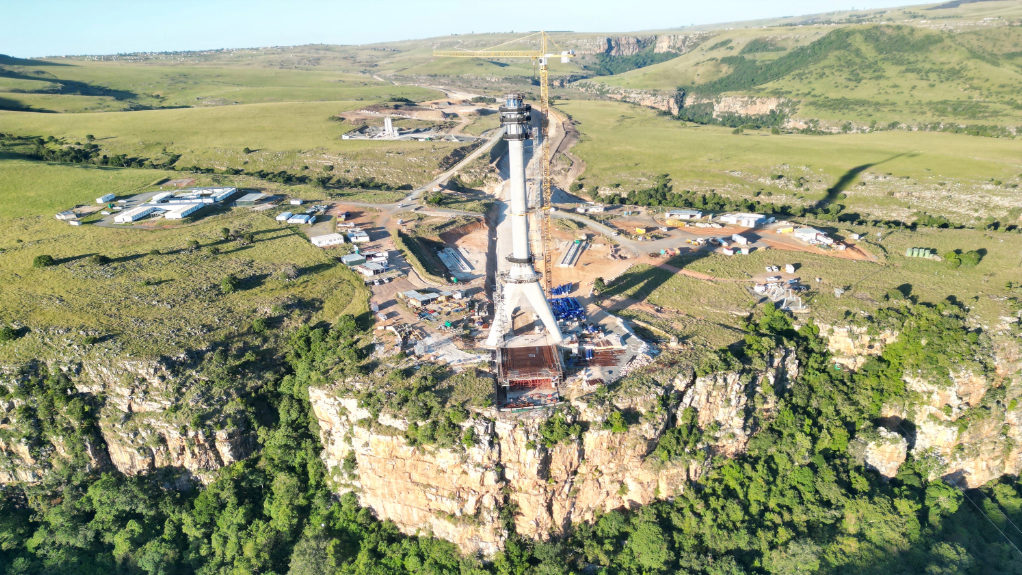
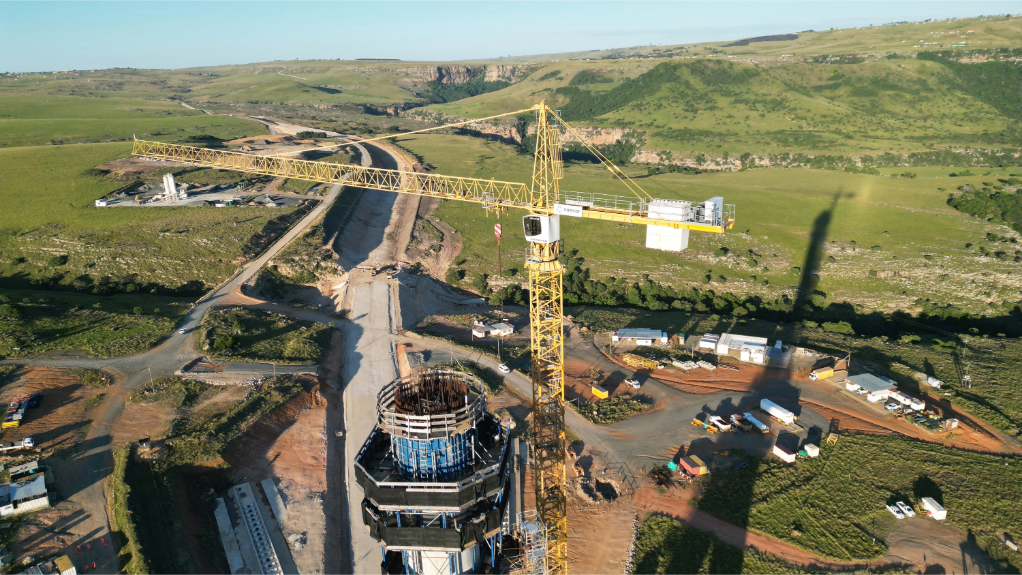
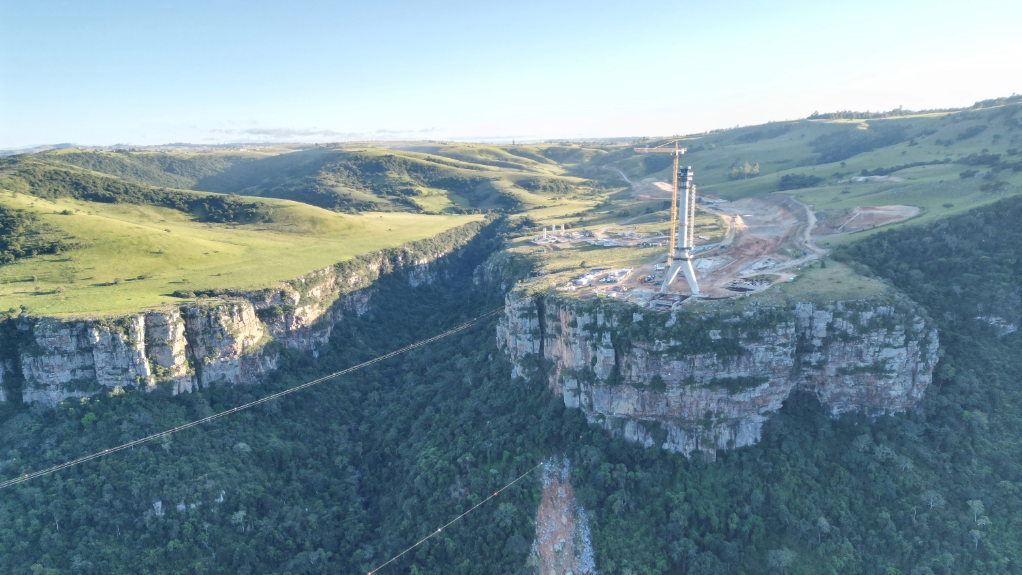
INTEGRAL CONNECTION The Msikaba Bridge forms part of the South African National Roads Agency Limited’s N2 Wild Coast project.
ELEGANT PINNACLES Once completed the two pylon spires for the Msikaba Bridge will create two elegant pinnacles
CONNECTING SIDES The bridge is being built from the north and south banks of the gorge and comprises two identical ‘halves’, each spanning 290 m, which will meet mid-point over the gorge
The Msikaba Bridge project, in South Africa’s Eastern Cape, is progressing significantly, says construction company Concor project director Laurence Savage, who notes the structure is now entering technically challenging phases.
The Msikaba Bridge forms part of the South African National Roads Agency Limited’s N2 Wild Coast project and is being constructed by a partnership between Concor and construction company Mecsa, namely the CME joint venture. Both companies are wholly black-owned, Construction Industry Development Board Grade 9CE-rated South African construction companies.
“The last two years have been spent completing the four 21 000-t anchor blocks and progressing the elegant bridge pylons on each side of the gorge,” Savage explains.
The first of these phases is the post-stressing of the anchor blocks, to ensure the transfer of load exerted by the stay cables is well distributed through the blocks. Embedded 14 m deep into each block, the post-stressing is profiled as a large ‘U’ shape to mobilise the dead mass of the anchor block being pulled up by the stay cable at the top.
He highlights that the post-stressing option is a modern and efficient strategy that reduces the need for reinforcement steel.
The locally procured post-tensioning strand cables at each of the 17 anchor points in each block are stressed up to around 500 t by a specialist company. The process is expected to take two to three weeks for each anchor point.
“The next major step will be installing pylon inserts into the pylon’s structure as it rises above the 86 m mark,” he says.
There are 17 inserts for each pylon, and these are steel rings weighing 8 t to 10 t each, which Savage says are concreted into place one after the other until the pylon reaches a height of about 122 m.
The pylon inserts are used as the anchors from which the cables run as back-stays to the anchor blocks, and as fore-stays to the bridge deck. However, Savage notes that not all the inserts have to be in place before the launching of the deck can begin.
Careful planning will allow the deck launching to start after the first five inserts are installed, which is likely to be in the second half of 2024.
Another demanding aspect of the bridge’s latest phase will be the construction of the ladder deck. Being the first steel deck segment of the bridge, the ladder deck is to be cast in concrete into the foundation of the pylon and will be the largest continuous pour on site.
“We will cast 700 m3 of concrete in a single pour, with a very strong 65 MPa mix,” he says, adding this will also demand a high density of reinforcement steel, weighing 160 t.
Article Enquiry
Email Article
Save Article
Feedback
To advertise email advertising@creamermedia.co.za or click here
Announcements
What's On
Subscribe to improve your user experience...
Option 1 (equivalent of R125 a month):
Receive a weekly copy of Creamer Media's Engineering News & Mining Weekly magazine
(print copy for those in South Africa and e-magazine for those outside of South Africa)
Receive daily email newsletters
Access to full search results
Access archive of magazine back copies
Access to Projects in Progress
Access to ONE Research Report of your choice in PDF format
Option 2 (equivalent of R375 a month):
All benefits from Option 1
PLUS
Access to Creamer Media's Research Channel Africa for ALL Research Reports, in PDF format, on various industrial and mining sectors
including Electricity; Water; Energy Transition; Hydrogen; Roads, Rail and Ports; Coal; Gold; Platinum; Battery Metals; etc.
Already a subscriber?
Forgotten your password?
Receive weekly copy of Creamer Media's Engineering News & Mining Weekly magazine (print copy for those in South Africa and e-magazine for those outside of South Africa)
➕
Recieve daily email newsletters
➕
Access to full search results
➕
Access archive of magazine back copies
➕
Access to Projects in Progress
➕
Access to ONE Research Report of your choice in PDF format
RESEARCH CHANNEL AFRICA
R4500 (equivalent of R375 a month)
SUBSCRIBEAll benefits from Option 1
➕
Access to Creamer Media's Research Channel Africa for ALL Research Reports on various industrial and mining sectors, in PDF format, including on:
Electricity
➕
Water
➕
Energy Transition
➕
Hydrogen
➕
Roads, Rail and Ports
➕
Coal
➕
Gold
➕
Platinum
➕
Battery Metals
➕
etc.
Receive all benefits from Option 1 or Option 2 delivered to numerous people at your company
➕
Multiple User names and Passwords for simultaneous log-ins
➕
Intranet integration access to all in your organisation













